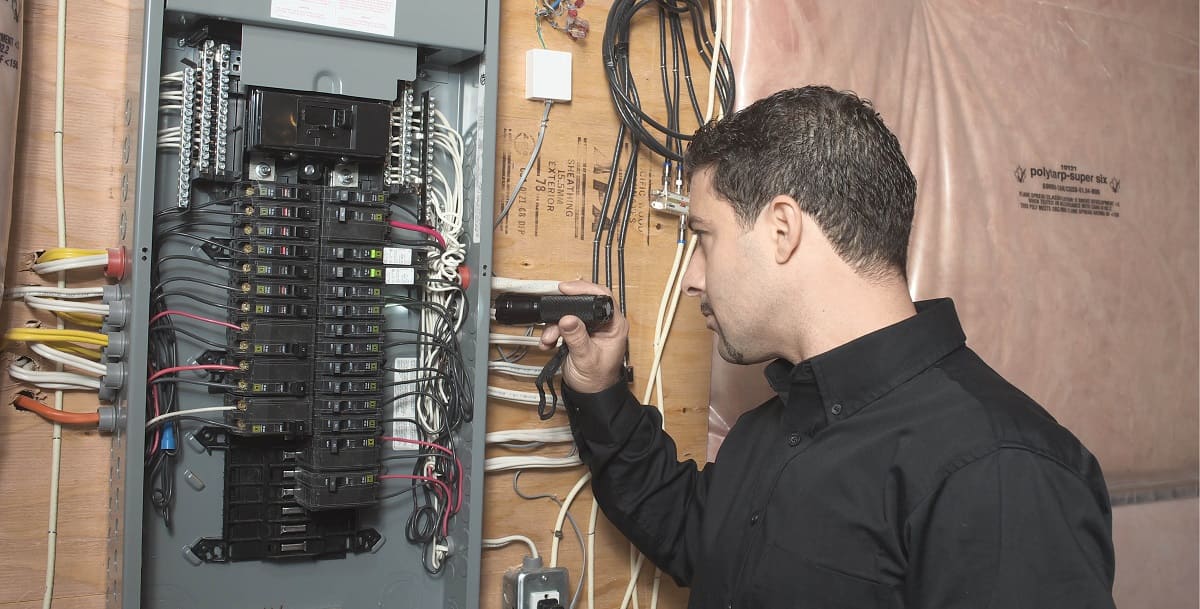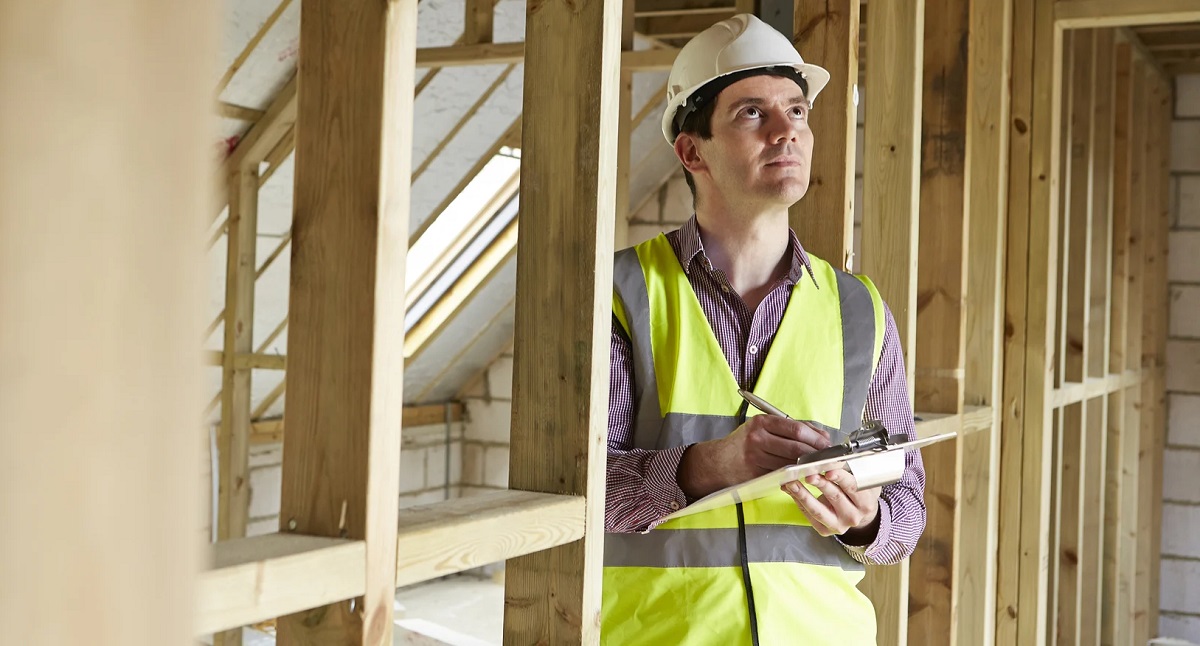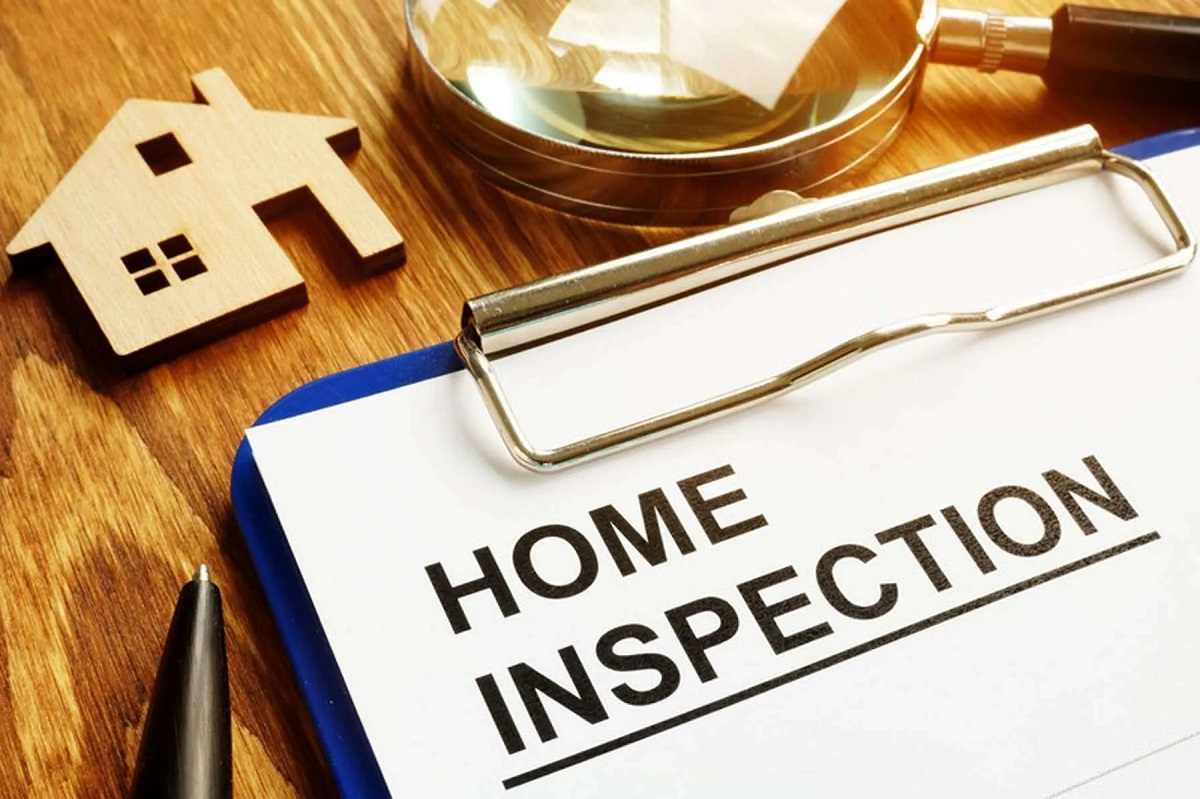Home>Home Maintenance>How Long Do Buyers Have To Complete An Inspection?


Home Maintenance
How Long Do Buyers Have To Complete An Inspection?
Modified: December 12, 2023
Learn about home maintenance and how long buyers have to complete an inspection before purchasing a property. Ensure a thorough inspection within the specified timeframe.
(Many of the links in this article redirect to a specific reviewed product. Your purchase of these products through affiliate links helps to generate commission for Storables.com, at no extra cost. Learn more)
Introduction
When purchasing a home, the inspection process is a crucial step that allows buyers to uncover any potential issues with the property before finalizing the transaction. However, this essential phase also comes with specific time constraints that buyers must adhere to in order to proceed with the purchase smoothly. In this comprehensive guide, we will explore the intricacies of inspection contingencies, the time frames associated with completing inspections, the factors that can impact inspection deadlines, the potential consequences of missing these deadlines, and valuable tips for buyers to ensure they can complete inspections within the specified time frames. By gaining a deeper understanding of these aspects, both homebuyers and sellers can navigate the inspection process with confidence and clarity.
Key Takeaways:
- Don’t Miss Your Deadline!
Buyers must complete home inspections within 7-14 days. Delays can lead to losing negotiation power, financial risks, and legal consequences. Plan ahead and communicate effectively to avoid complications. - Be Proactive and Communicative
Buyers should plan inspections early, engage qualified professionals, and communicate clearly. This ensures timely completion, informed decisions, and protection of their interests in the home-buying process.
Understanding Inspection Contingencies
Inspection contingencies are provisions in a real estate contract that allow buyers to conduct thorough examinations of the property before the sale is finalized. These contingencies typically outline the specific types of inspections that buyers intend to carry out, such as a general home inspection, pest inspection, radon testing, or assessments of structural integrity, among others. The inclusion of inspection contingencies provides buyers with the opportunity to identify any issues that may affect their decision to proceed with the purchase.
It’s important to note that inspection contingencies also specify the timeframe within which these inspections must be completed. This timeframe is typically negotiated between the buyer and seller during the initial stages of the contract, and it is crucial for both parties to clearly understand and agree upon these deadlines to avoid potential complications later in the process.
Furthermore, inspection contingencies often include provisions that allow buyers to request repairs or negotiate the terms of the sale based on the findings of the inspections. If significant issues are uncovered during the inspection process, buyers may have the option to back out of the purchase agreement without facing financial penalties, provided that the contingencies are structured in a way that protects their interests.
Overall, inspection contingencies serve as a vital mechanism for buyers to safeguard their investment in a property by ensuring that they have a comprehensive understanding of its condition before finalizing the purchase.
Time Frames for Completing Inspections
Once the inspection contingencies are established and agreed upon by both the buyer and seller, specific time frames for completing the inspections are set forth in the purchase contract. These time frames are critical milestones in the home-buying process, as they dictate the period within which buyers must conduct their due diligence and obtain the necessary assessments of the property’s condition.
Typically, the standard time frame for completing inspections ranges from 7 to 14 days from the date the purchase agreement is ratified. However, it’s important to note that these time frames are negotiable and can vary based on the specific terms outlined in the contract. Buyers should pay close attention to the deadlines specified in the inspection contingencies and ensure that they have ample time to coordinate and schedule the necessary inspections.
Additionally, buyers should be mindful of any local or state regulations that may impose specific time frames for certain types of inspections, such as termite inspections or environmental assessments. By familiarizing themselves with these requirements, buyers can effectively plan and allocate time to fulfill all necessary inspection obligations within the designated periods.
It’s crucial for buyers to communicate proactively with their real estate agent and inspection professionals to secure appointment times that align with the specified time frames. Delays in scheduling inspections can have significant implications for the overall timeline of the purchase process, potentially leading to challenges in meeting other contractual deadlines.
By understanding and adhering to the time frames for completing inspections, buyers can navigate this phase of the home-buying journey efficiently and ensure that they have the opportunity to thoroughly evaluate the property before making a final decision.
Factors Affecting Inspection Deadlines
Several factors can influence the deadlines associated with completing inspections during the home-buying process. Understanding these factors is essential for buyers to effectively manage their time and fulfill their obligations within the specified time frames.
- Property Location and Accessibility: The location of the property and its accessibility to inspection professionals can impact the timeline for completing inspections. In rural or remote areas, scheduling inspections may require additional time due to limited availability of inspectors or longer travel distances.
- Complexity of Inspections: Properties with unique features, extensive square footage, or specialized systems, such as solar panels or geothermal heating, may necessitate more time for thorough inspections. Buyers should consider the complexity of the property when planning the inspection timeline.
- Vendor Availability: The availability of qualified inspection vendors, such as home inspectors, pest control experts, and structural engineers, can influence the scheduling of inspections. High-demand vendors may have limited availability, potentially impacting the ability to secure timely inspection appointments.
- Weather and Seasonal Considerations: Weather-related factors, such as snowfall, heavy rain, or extreme temperatures, can affect certain types of inspections. For instance, inclement weather may impede outdoor assessments or roof inspections, leading to potential delays in completing the inspection process.
- Scope of Additional Testing: In some cases, inspection findings may prompt the need for additional testing or specialized assessments, such as mold testing, asbestos inspections, or water quality testing. The inclusion of such tests can extend the overall inspection timeline.
Buyers should take these factors into account when planning the inspection process and strive to proactively address potential challenges that may arise. Effective communication with their real estate agent, inspection professionals, and the seller’s representative can help mitigate issues related to inspection deadlines and ensure a smooth and comprehensive evaluation of the property.
Buyers typically have 7-10 days to complete a home inspection after the offer is accepted. It’s important to schedule the inspection promptly to allow time for any necessary negotiations or repairs.
Consequences of Missing Inspection Deadlines
Missing the deadlines for completing inspections can have significant implications for buyers in the home-buying process. Failing to adhere to the specified time frames outlined in the inspection contingencies can result in various repercussions that may impact the overall transaction and the buyer’s position.
- Waiver of Contingencies: In many real estate contracts, the expiration of the inspection deadlines without the buyer taking appropriate action can lead to the automatic waiver of inspection contingencies. This means that the buyer forfeits the right to request repairs, negotiate the terms of the sale based on inspection findings, or withdraw from the contract based on unsatisfactory inspection results.
- Financial Risks: Missing inspection deadlines can expose buyers to financial risks, as they may be obligated to proceed with the purchase without having fully assessed the property’s condition. Undisclosed issues discovered after the deadlines have passed could lead to unexpected expenses for repairs or renovations that the buyer is now responsible for.
- Legal Implications: Depending on the specific terms of the purchase contract, failing to meet inspection deadlines could result in legal ramifications. Buyers may be held accountable for breaching the contract or failing to fulfill their obligations, potentially leading to disputes with the seller and legal actions.
- Impact on Negotiations: Timely completion of inspections allows buyers to leverage their findings in negotiations with the seller. Missing deadlines diminishes the buyer’s ability to address significant issues discovered during inspections, limiting their negotiating power and potentially leading to less favorable terms in the final agreement.
Understanding the potential consequences of missing inspection deadlines underscores the critical importance of adhering to these timelines. Buyers must prioritize effective time management and diligent coordination to ensure that they can fulfill their inspection obligations within the specified periods, thereby safeguarding their interests and minimizing the risks associated with incomplete assessments of the property.
Read more: How To Complete The Buyer’s Final Inspection
Tips for Buyers to Complete Inspections on Time
Successfully completing inspections within the designated time frames is essential for buyers to make informed decisions and protect their interests in a real estate transaction. To navigate this phase effectively and ensure timely completion of inspections, buyers can implement the following tips:
- Proactive Planning: Upon ratification of the purchase agreement, buyers should immediately begin coordinating inspection appointments. Proactive planning allows for greater flexibility in scheduling inspections and helps mitigate potential delays.
- Engage Qualified Professionals: Partnering with reputable and experienced inspection professionals, such as certified home inspectors and specialized technicians, is crucial. Buyers should research and secure the services of qualified experts who can conduct thorough assessments within the required time frame.
- Clear Communication: Maintaining open and clear communication with the real estate agent, inspection professionals, and the seller’s representative is essential. Buyers should promptly convey their preferred inspection dates and work collaboratively to schedule appointments that align with the specified deadlines.
- Flexibility and Availability: Remaining flexible with availability for inspections can expedite the process. Buyers should accommodate potential scheduling conflicts and be readily available to attend inspections or provide access to the property as needed.
- Research Local Requirements: Familiarizing themselves with local regulations and specific inspection requirements in the property’s location enables buyers to anticipate any unique considerations and plan accordingly to meet all obligations within the prescribed time frames.
- Thorough Review of Findings: Upon receiving inspection reports, buyers should promptly review the findings and consider any necessary follow-up assessments. Timely evaluation of inspection results is crucial for making informed decisions and addressing any concerns within the designated period.
- Consultation with Real Estate Professionals: Seeking guidance from real estate agents and legal advisors can provide valuable insights into navigating the inspection process. Professional expertise can help buyers understand their rights and responsibilities, ensuring compliance with inspection deadlines.
By implementing these proactive strategies and maintaining a proactive approach throughout the inspection phase, buyers can optimize their ability to complete inspections on time and make well-informed decisions regarding the purchase of the property.
Conclusion
The completion of inspections within the specified time frames is a critical aspect of the home-buying process, allowing buyers to thoroughly assess the condition of the property and make informed decisions. Understanding inspection contingencies, the time frames for completing inspections, and the factors that can influence inspection deadlines is essential for buyers to navigate this phase effectively.
By adhering to inspection deadlines, buyers can protect their interests, leverage inspection findings in negotiations, and avoid potential repercussions associated with missed deadlines, such as the waiver of contingencies and financial risks. Proactive planning, clear communication, and engagement with qualified professionals are key elements that enable buyers to fulfill their inspection obligations within the prescribed periods.
Ultimately, completing inspections on time empowers buyers to make well-informed decisions regarding the purchase of a property, ensuring that they have a comprehensive understanding of its condition and potential implications. By embracing proactive strategies and maintaining diligence throughout the inspection process, buyers can streamline this crucial phase and proceed with confidence in their real estate transactions.
With a thorough understanding of the intricacies of inspection deadlines and a proactive approach to fulfilling these obligations, buyers can navigate the home-buying journey with clarity and assurance, ultimately securing a property that aligns with their needs and expectations.
Frequently Asked Questions about How Long Do Buyers Have To Complete An Inspection?
Was this page helpful?
At Storables.com, we guarantee accurate and reliable information. Our content, validated by Expert Board Contributors, is crafted following stringent Editorial Policies. We're committed to providing you with well-researched, expert-backed insights for all your informational needs.















0 thoughts on “How Long Do Buyers Have To Complete An Inspection?”